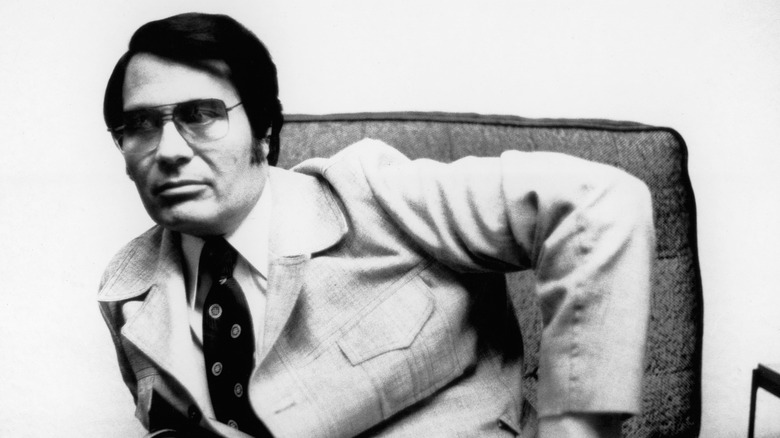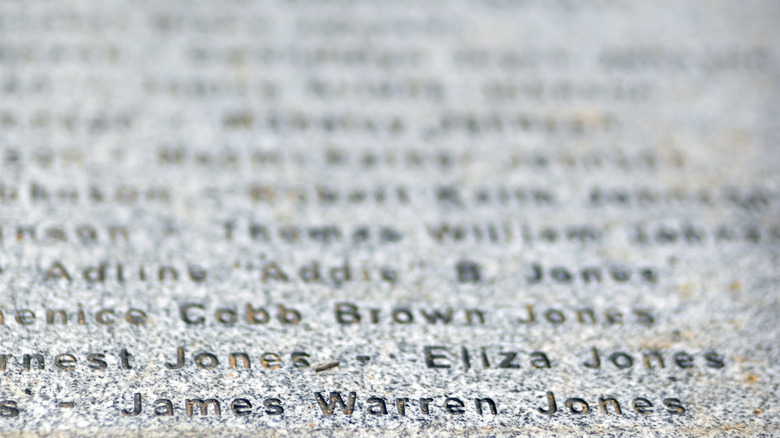The Psychology Behind The Jonestown Massacre Finally Explained
On November 18, 1978, more than 900 men, women, and children, died by suicide and murder at the Jonestown settlement in Guyana. As reported by History, the suicides and murders were committed under the direction of Reverend Jim Jones, who was the leader of the Peoples Temple religious sect.
Psychology Today reports, "suicide is usually an act of lonely desperation, carried out in isolation or near isolation." However, mass suicide, especially of the scale that happened at Jonestown, is extraordinarily rare.
For the last 43 years, people have questioned how one man could convince more than 900 others to knowingly kill their children and commit suicide. In addition to determining how and why the Jonestown Massacre happened, Psychologists want to make sure it never happens again.
As reported by The Washington Post, Jim Jones opened his first church in 1953, at the age of 22. Although he was not yet formally ordained, he gained respect, and a following, for his dedication to racial equality and human rights.
In the early 1960s, Jones was ordained as a Disciples of Christ minister and continued to build his following at The Peoples Temple Full Gospel Church. However, by 1965, he became obsessed with concerns about a nuclear war. He eventually convinced his congregation to move with him to California, where he believed they would all be safe if a nuclear war occurred.
By the late 1970s, History reports some sources estimated Reverend Jim Jones had up to 20,000 followers.
What actually happened in Jonestown?
In 1974, Reverend Jim Jones signed a lease for 27,000 acres of land in Guyana. History reports Jones continued to lead his church in California. However, he sent a group of his followers to Guyana to prepare the land for farming and to establish a compound.
In 1977, Jim Jones and more than 1,000 of his followers moved to Guyana to live in the newly established Jonestown settlement. A little more than one year later, more than 900 of those followers were dead. Some survivors managed to escape.
History reports the Jonestown Massacre was prompted by a congressman visiting the compound. Amid reports of ongoing abuse, the congressman traveled to the compound to check the welfare of its residents. During the visit, several members asked the congressman to help them leave. However, the group was ambushed on their way back to the plane and four people were killed.
Within hours, Jones convinced his followers to poison their children and to take their own lives. As reported by History, Jones told them they were about to be attacked in retaliation for the ambush.
Psychologists believe Reverend Jim Jones used mental and physical abuse, blackmail, humiliation, and threats to break his followers down and ultimately convince them he was their savior. Those who weren't convinced were simply too frightened to leave.
As reported by Psychology Today, Jones routinely forced his followers to sign blank power of attorney forms and false confessions to crimes, including child molestation, to prove their loyalty to him and the church.
How Jim Jones gained control of his followers
As reported by Psychology Today, Jones also used degradation and humiliation to exert control over his followers. Although couples were prohibited from having sex with each other, they were forced to have sex with Jones or other members while their spouses were forced to watch. He also humiliated his followers by making them strip naked and criticizing their bodies in front of others.
Unfortunately, children were not exempt from Reverend Jim Jones' abuse. Children were routinely beaten, "tortured with electric shocks," and left in the bottom of an abandoned well as punishment. There are also reports that they were sexually abused.
Psychology Today reports Reverend Jones used abuse and humiliation to weaken his followers' willpower. However, the threats of blackmail ensured they would remain under his control.
In addition to the blackmail, Jones routinely threatened to have any defectors killed by his "angels." Not only were many followers afraid to leave, but they were also afraid of what might happen to any loved ones they left behind.
As reported by Psychology Today, Jonestown ultimately became "a twilight-zone reality in which people pretended to be enjoying a Utopian existence while living in constant fear for their lives."
With little willpower left, Jim Jones' followers were susceptible to his assertions that he was, in fact, God, and that he had their best interests in mind. He also convinced them they would be transported to another planet, where they would live in paradise if they ever died.


